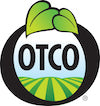U.S. Moves Closer to Organic Regulations for Seafood

Organic fish and shellfish are closer to becoming reality in the U.S., but probably not in time for dinner tonight.
The USDA has announced that it will propose standards for organic farmed fish and shellfish products, but the process could take years before regulations and certifications are in place.
“Organic seafood would be welcome news for the increasing number of organic shoppers — and for retailers that have profited from their higher prices,” reports ABCNews. “It could also help the U.S. farmed fish industry find a premium as it struggles to compete against cheaper imports.”
A number of fish and shellfish varieties likely to fall under the organic fish labeling include salmon, tilapia, catfish, shrimp, mussels, oysters and clams.
The European Union and Canada already have organic aquaculture programs in place; and are even exporting organic fish and shellfish products to the U.S. But retailers, including Whole Foods Market, say they’ll wait for the organic certification before labeling any seafood as organic.
“It's still unclear if U.S. standards can be successful,” reports ABC. “Many in the farmed fish industry say they expect that the requirements for fish feed may be so strict as to be financially prohibitive.”
Questions surround the diets fed to farmed fish labeled as organic and whether or not ocean cages known as net pens would be permissible. Since many fish eat other fish, creating an organic supply chain could prove to be challenging, if not impossible, for an organic fish industry.
Further conflating the issue, some environmental groups criticize the recommendations “for suggesting that at first a quarter of the fish feed could be from sustainably wild-caught — but not organic — fish,” reports ABC. “A fish can't be organic, they argue, if it doesn't eat 100 percent organic feed,” a similarly contentious issue with organic animal products.
For ocean-raised fish, the issue of contamination is a big concern. "What we're saying is this isn't organic," Lisa Bunin of the Center for Food Safety told the AP.
With the proper safeguards in place though, organic aquaculture could help consumers make safe seafood choices at a time when concern and confusion about seafood options is widespread.
Image: Mr.TinDC
Leave a comment
Comments will be approved before showing up.


